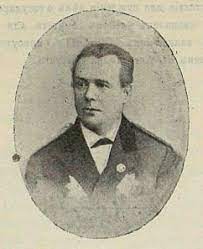Lilienfeld, Paul von

Bio: (1829-1903) Russian sociologist. Paul von Lilienfeld (Павел Фёдорович Лилиенфельд-Тоаль) studied at the Lyceum in St. Petersburg. He advocated the position of extreme organicism. He believed that there is not only similarity but an identity between society and the organism. Within society, there is a connection of parts, and over time there is a progressive differentiation of structures. This makes society similar to an organism. What distinguishes society from the organism is its purposefulness and spirituality. In addition, society has more freedom in relation to external, material causality. The society also has the ability to store resources and energy that it will use in the future. Every society has three basic subsystems: economic, legal, and political. These three subsystems correspond to the physiological, morphological, and integrative functions of the organism. Politics performs the functions of integration and coordination and corresponds to the brain within the organism. With the development of society and the increased differentiation of parts, there must be the development of a more perfect government that will have increasing control over force, in order to be able to implement the integration of independent parts of society. Involution, decadence, and pathology are diseases of the organism, and they can be found both in individuals and in social groups or classes. The role of the government is to eliminate these diseases of the social organism.
Theoretical approaches
OrganicismMain works
Земля и воля (1868);
Мысли о социальной науке будущего (1872);
Gedanken über die Socialwissenschaft der Zukunft, 5 vol. (1873-1881);
Социальная философия (1894);
Die Sociale Physiologie (2018);
La Pathologie Sociale (2019).

